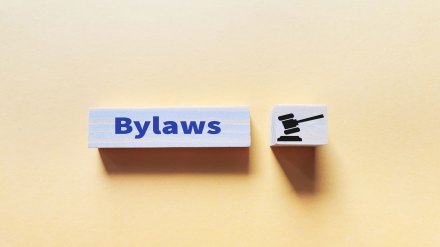Q: Our church bylaws state that board members serve a maximum of six years in office. Our church is in the midst of a construction project, and one of our board members is a contractor who has provided invaluable assistance to the church during this project. Many of the members wanted this person to remain on the board following the expiration of his term of office. A member made a motion to “suspend the bylaws” to allow this to happen. This motion did not pass, but it raised a question in our minds concerning the legality of suspending bylaws. Can church members, at a duly called business meeting, take action to suspend the bylaws?
In most cases, the answer is no. Consider these 10 points:
One
State nonprofit corporation laws under which many churches are incorporated generally make no provision for the suspension of bylaws.
Two
Suspension of bylaws is an extraordinary action that is not found in most church bylaws, but it is important to confirm that this is the case.
Three
If your church bylaws allow for their own suspension, then be sure to comply with any procedural requirements. For example, the bylaws of some public charities and for-profit corporations provide for their own suspension, but they typically require a super-majority vote, such as two-thirds or three-fourths of the members present.
Four
Many churches have adopted the current version of Robert’s Rules of Order as their official body of parliamentary procedure governing church business meetings. Section 25 of Robert’s Rules of Order states: “Rules contained in the bylaws (or constitution) cannot be suspended no matter how large the vote in favor of doing so or how inconvenient the rule in question may be unless the particular rule specifically provides for its own suspension, or unless the rule properly is in the nature of a [procedural] rule of order.” For churches that have not formally adopted any body of parliamentary procedure, Robert’s Rules of Order is persuasive authority. Section 2 of Robert’s Rules of Order states: “Although it is unwise for an assembly or a society to attempt to function without formally adopted rules of order, a recognized parliamentary manual may be cited under such conditions as persuasive.”
Five
Some corporations have amended their bylaws to remove a provision authorizing their suspension. One common reason for doing so is that a provision authorizing bylaw suspension is anti-democratic. That is, the bylaws are adopted by the corporate membership following an intensive period of drafting and consideration. Permitting this fundamental legal document, or a provision therein, to be suspended by a specified percentage of members present at an annual or specially called meeting of the members typically will result in a relatively small minority of the total membership dictating a suspension of the bylaws.
Six
Churches that choose to provide for the suspension of their bylaws can limit potential problems by requiring a super-majority vote and by limiting the suspension option to specific bylaw articles or sections.
Seven
In a famous case, Supreme Court Justice Oliver Wendell Holmes noted that “hard cases make bad law.” The point being that bad precedents often result from difficult circumstances. Churches that feel compelled to suspend their bylaws, even when legally authorized, may end up regretting doing so. At a minimum, they will be establishing a precedent that may be referenced on many future occasions whenever an emergency arises. The very concept of corporate bylaws being subject to suspension is at odds with the fundamental nature of bylaws as a set of rules governing corporate practice and administration. In one sense, the bylaws are the one document that protects a church against anarchy. Any compromise to the stability of a church’s bylaws raises the potential for future problems.
Eight
Bylaws typically provide for their own amendment. In many cases, bylaw amendments take effect immediately. Bylaw amendments should be viewed as an alternative to bylaw suspension.
Nine
Proper drafting of bylaws often can avoid the clamor for their suspension that may arise out of temporary emergencies. Church leaders should periodically have their bylaws reviewed by legal counsel.
Ten
Suspending the bylaws, when not authorized, will result in a “cloud” over the integrity and legitimacy of whatever action is taken while the bylaws are suspended.





